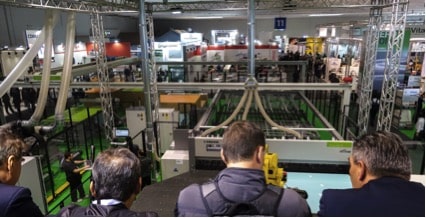ITALY – Despite the more than EUR 40 million of signed orders achieved during the Ligna fair in May, the Biesse Group recognizes the slowdown in dynamics that is affecting the industry as a whole.

Biesse stated in a communication to the market “Given that the actual demand volatility is making extremely aleatory any estimate, the consolidated sales are – at present – expected to be in a range of €680-690 million and the EBITDA in a range of €62-65 million. The Group is anyway forecasting for the current year, despite the revision above mentioned, a positive Net Financial Position”.
The slowdown in dynamics is highlighted by the sector studies regarding the Biesse industries of reference – Acimall, VDMA, UCIMU –and the official and unofficial orders intake data stated by the main competitors of the Group. In the first 5 months of the 2019 the data shows a considerable coolness of demand, after a positive cycle that lasted 4 years (2015-2018).
In particular, for this wide sample basket of markets/companies, the negative delta between the 2019 new orders compared to the same period 2018 is amounting on average around -15% (with a peak of – 19% communicated by the main Biesse competitor in woodworking machinery).
Biesse’s communication to the market further explains: “For what is concerning the levels of the projected marginality for the FY 2019, it is good to reiterate that the Group will is to protect the investments regarding organization, products and markets in which it operates, being sure that this is the correct path to re-confirm our world leadership as soon as the demand will start again. In the end, the consensus regarding the world economy trend for the next 12-18 months remains uncertain due to the widespread political and economic instability pervading the markets; consequently there is an objective complexity to read the demand for the three years plan 2019-2021. So, with this state of the things, we can only assume a shift to the FY 2022 of the targets originally fixed for the FY 2021”.


0 Comments